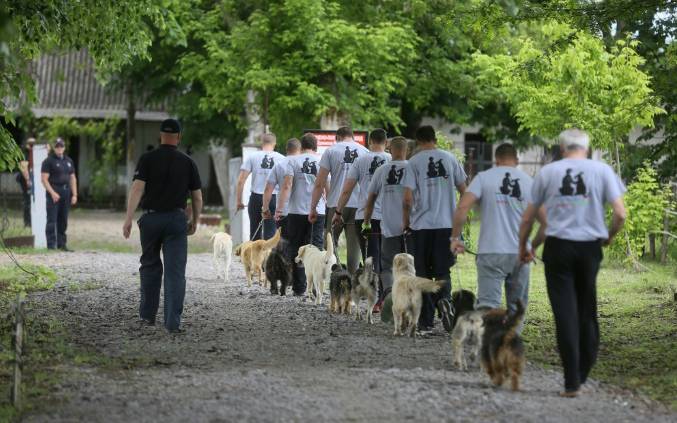×
The Standard e-Paper
Fearless, Trusted News

Prisoners at a Serbia prison are teaming up with stray dogs to prepare for a second chance in life. [Photo: AFP]
Dusan and Cupko both lost their way in life before finding themselves behind bars in Serbia's largest prison.